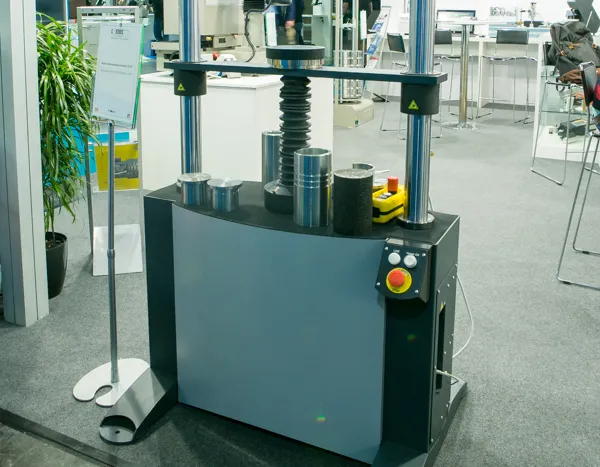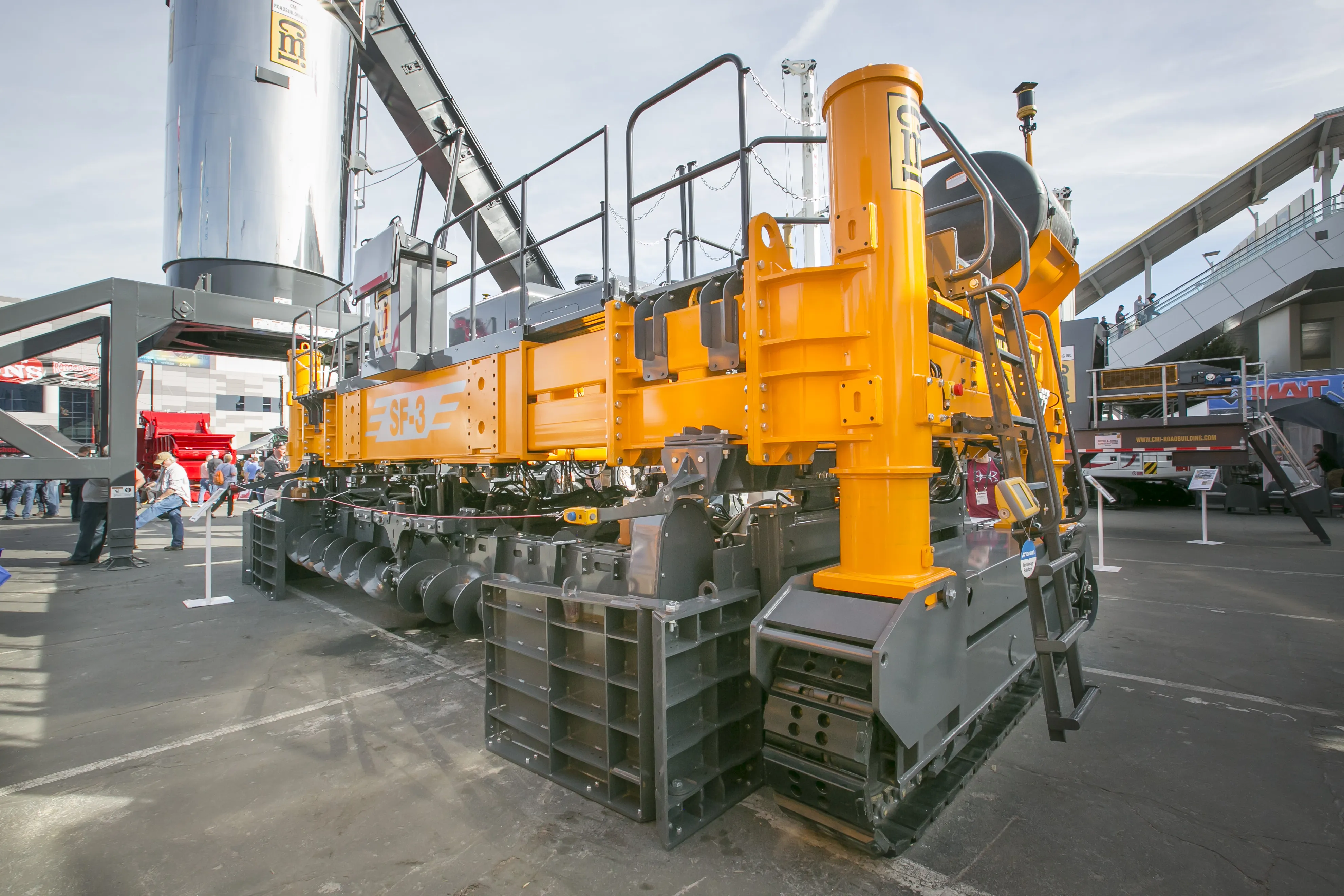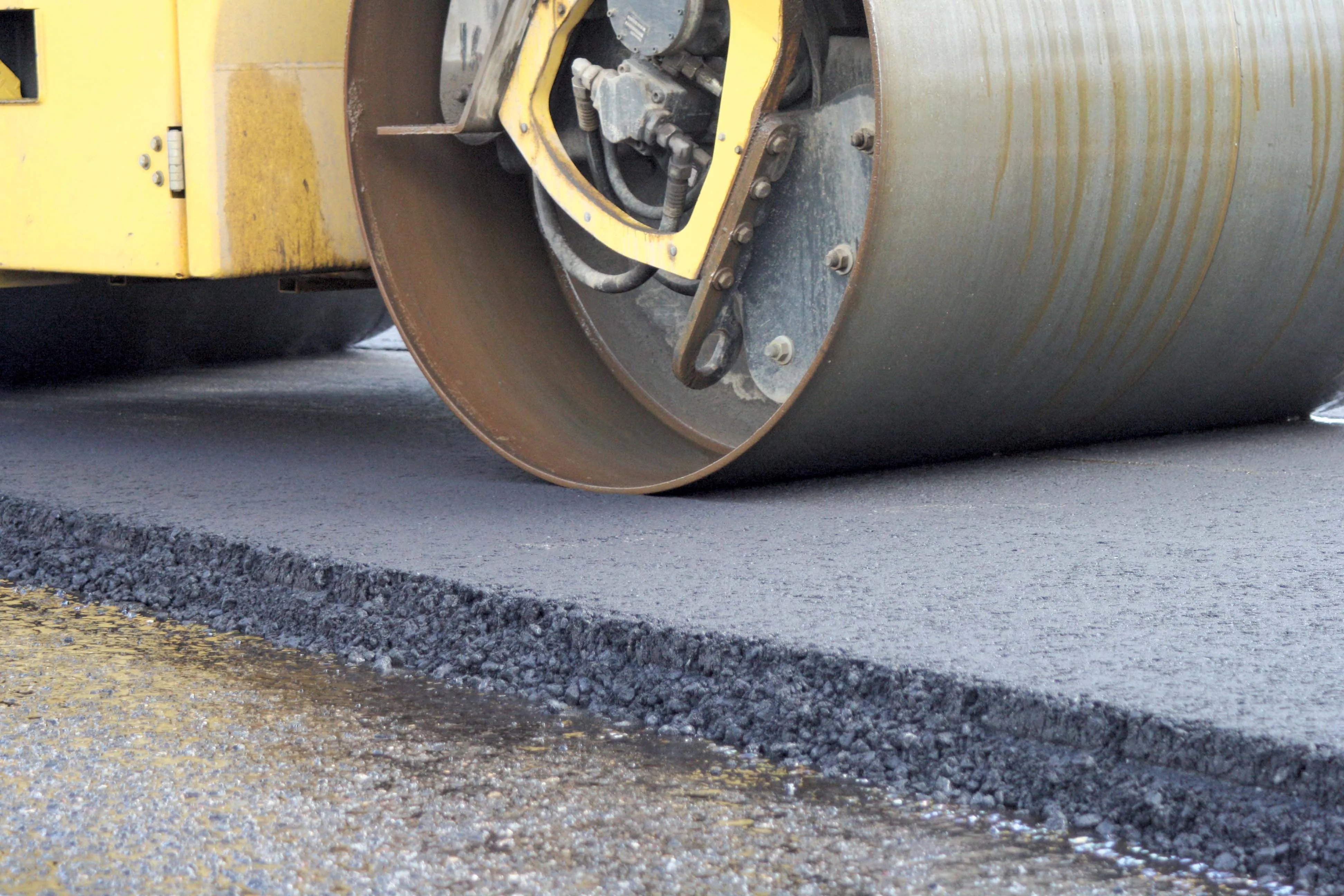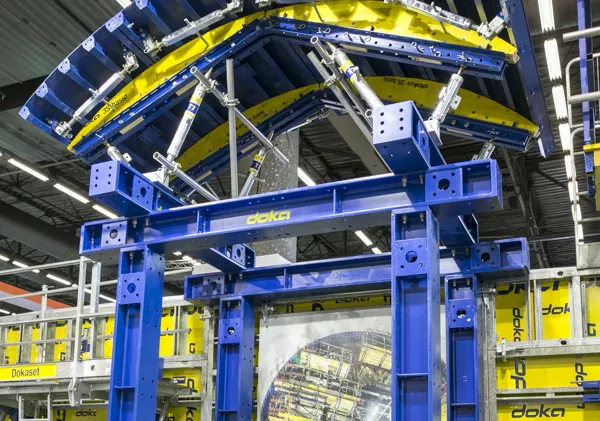
The UNIFRAMEplus 250kn can be used on a variety of materials including bitumen, concrete, rock and steel, in either tension or compression. “This would be a good machine for companies making precast elements, for companies carrying out checking and quality control and for testing laboratories generally,” says CONTROLS France’s technical director Roberto Tonial.
The universal tester is PC-controlled and can be used with a variety of software packages, depending on the test required. It has 14 channels: four for load sensors, six to measure strain values with transducers and four to measure strain with strain gauges.
CONTROLS notes two features which make the machine ideal for testing fibre reinforced concrete. First, the frame is very stiff despite its large height. Second, the machine has a closed loop PID (proportional – integral - derivative) control system to provide fast reaction time and accurate test control.
The Specimen Grinding Machine offers a lower-cost way to grind testing specimens down to size. CONTROLS already offers a larger, automatic version, but the new machine will appeal to customers who are looking for a more compact or cost-effective solution, says Tonial. The manual machine can grind up to two standard concrete cubes, two concrete cylinders or four rock cores at the same time.









